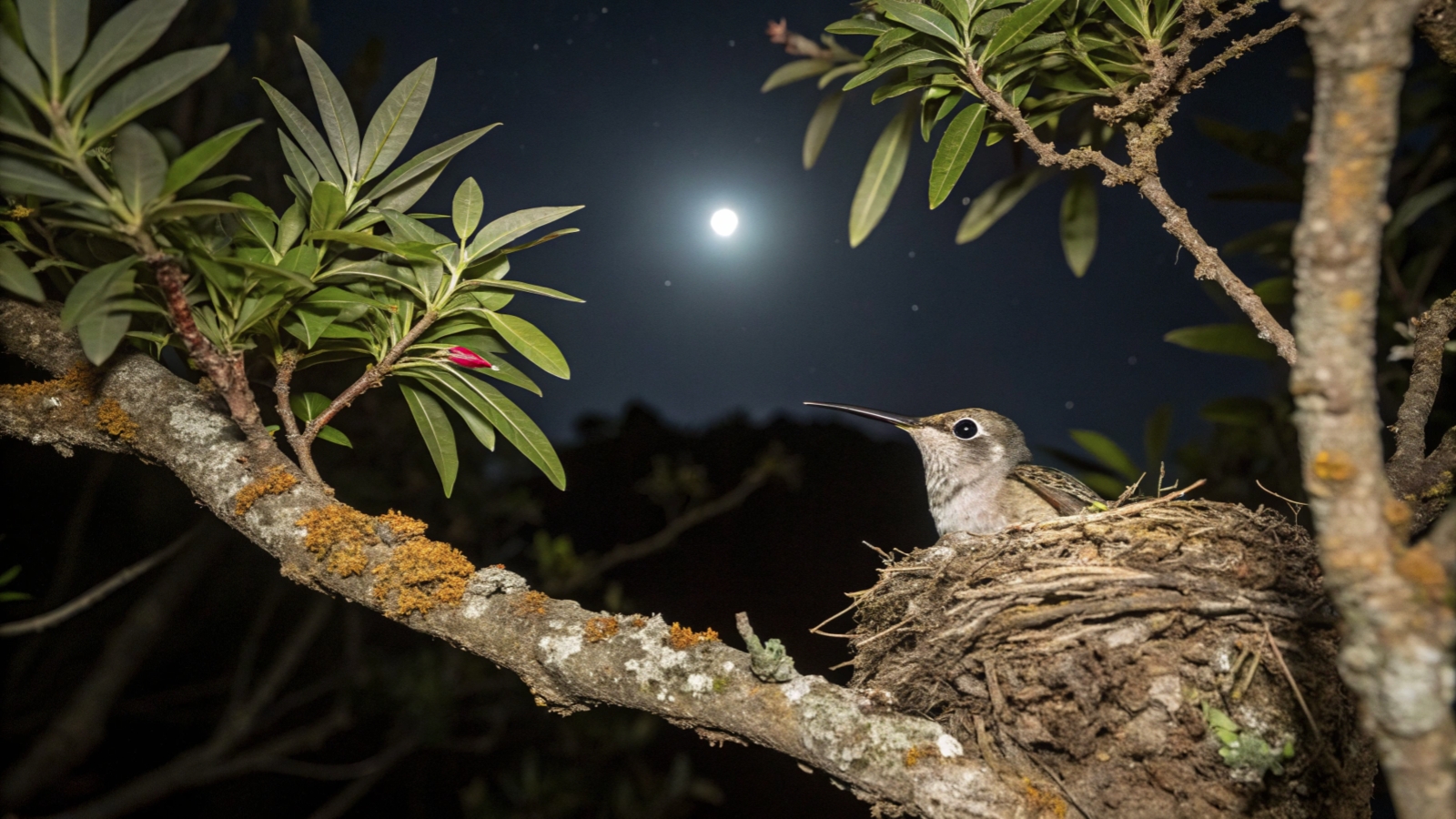Have you ever wondered where these tiny, energetic birds spend their nights? While most of us see hummingbirds zipping around during daylight hours, their nighttime behaviour is quite different, especially when it comes to nesting.
In this blog post, we’ll explore what hummingbirds do at night and their unique nesting habits.
Quick Answer: Adult female hummingbirds do not leave their nests at night when they have eggs or baby chicks to protect and keep warm. They remain vigilantly perched on the nest throughout the night to ensure their offspring’s survival.
Nesting Behavior of Mother Hummingbirds
Female hummingbirds are incredibly dedicated parents. Once they lay their eggs (usually two tiny ones about the size of peas), they rarely leave the nest except for quick food breaks during the day. At night, the mother bird stays firmly in place, using her body heat to keep the eggs or chicks warm.
The mother’s presence also protects her young from:
- Nighttime predators like owls and bats
- Cold temperatures that could harm developing eggs or chicks
- Sudden weather changes.
Non-Nesting Hummingbirds at Night
When hummingbirds aren’t caring for eggs or chicks, their nighttime routine is quite different. These tiny birds find a safe branch or leafy shelter where they can rest undisturbed. They then enter a remarkable state called torpor, which helps them save energy during the cold night hours.
During torpor:
- Their heart rate slows dramatically
- Body temperature drops significantly
- Breathing becomes very shallow
- They hang upside down like tiny bats.
Weather’s Impact on Nesting Behaviour
Mother hummingbirds stay especially alert during bad weather. They’ll endure rain, wind, and even mild storms to protect their nest. Their waterproof feathers and the careful construction of their nests help keep both mother and babies dry and safe.
Another exciting post to read: Are Hummingbirds Good Luck?
Final Thoughts
The dedication of mother hummingbirds to their nests at night shows just how remarkable these tiny birds are. Their commitment to staying with their eggs and chicks through the night ensures the survival of the next generation of these amazing creatures.
Did you know about hummingbirds’ incredible nighttime nesting habits? Share your own hummingbird observations in the comments below!
Frequently Asked Questions about – Do Hummingbirds Leave Their Nest at Night?
Q: How long do baby hummingbirds stay in the nest?
A: Baby hummingbirds typically stay in the nest for 18-22 days after hatching. During this time, the mother continues to protect them at night and feed them during the day.
Q: Do male hummingbirds help with the nest at night?
A: No, male hummingbirds don’t help with nesting duties. The female handles all nest-building, egg-sitting, and chick-raising responsibilities on her own.
Q: Where do hummingbirds build their nests?
A: Female hummingbirds build their nests in sheltered spots on tree branches, often concealed by leaves. They typically place them 4-20 feet above the ground and use spider webs, plant down, and lichen to construct them.
Q: How do mother hummingbirds protect the nest at night?
A: Mother hummingbirds stay alert to potential threats while sitting on the nest, using their excellent hearing and sight to detect predators. They also carefully position themselves to shield their eggs or chicks from wind and rain.
Q: Can hummingbirds see at night?
A: While hummingbirds have good eyesight, they’re not well-adapted for night vision. This is another reason why nesting mothers stay put after dark rather than risk flying in low-light conditions.
